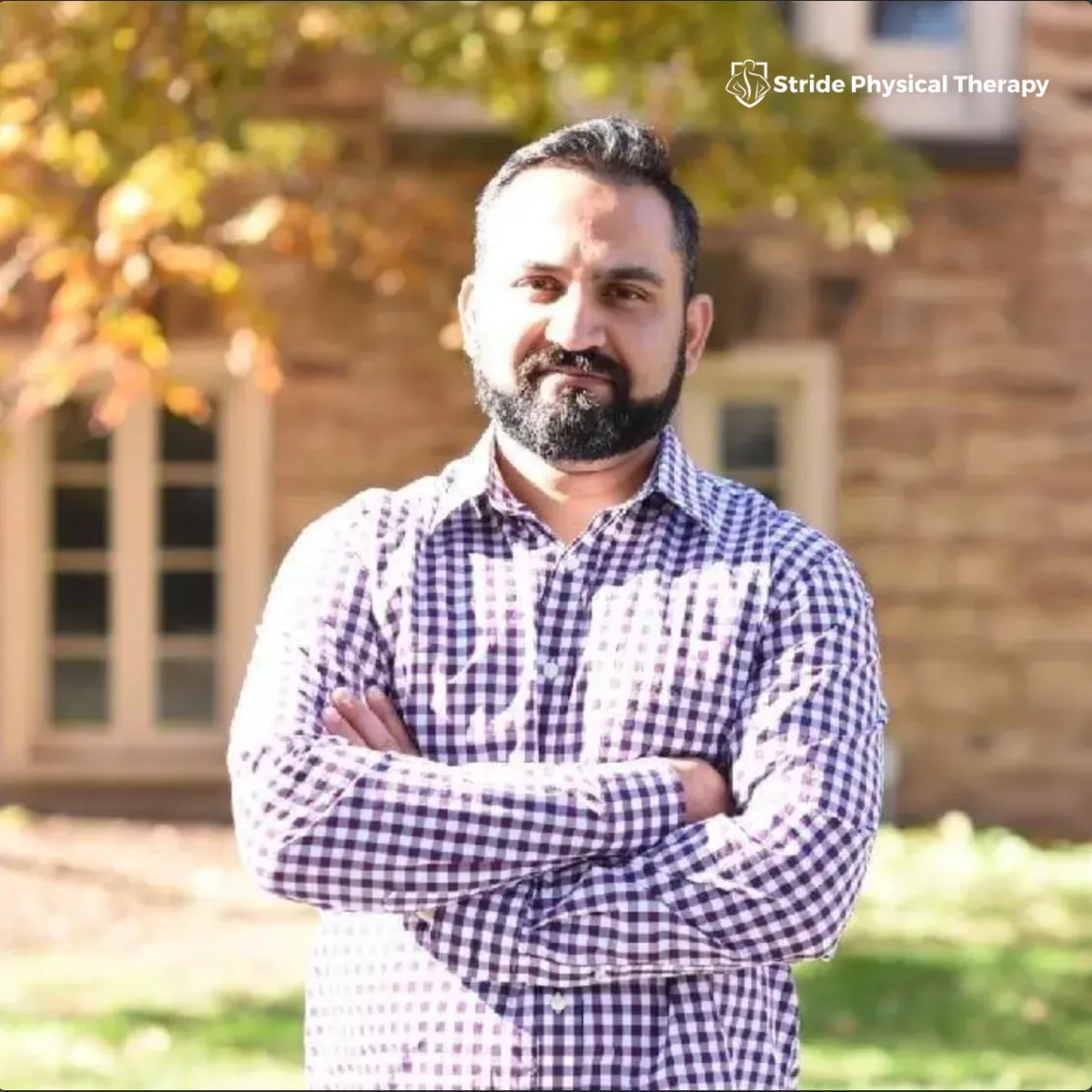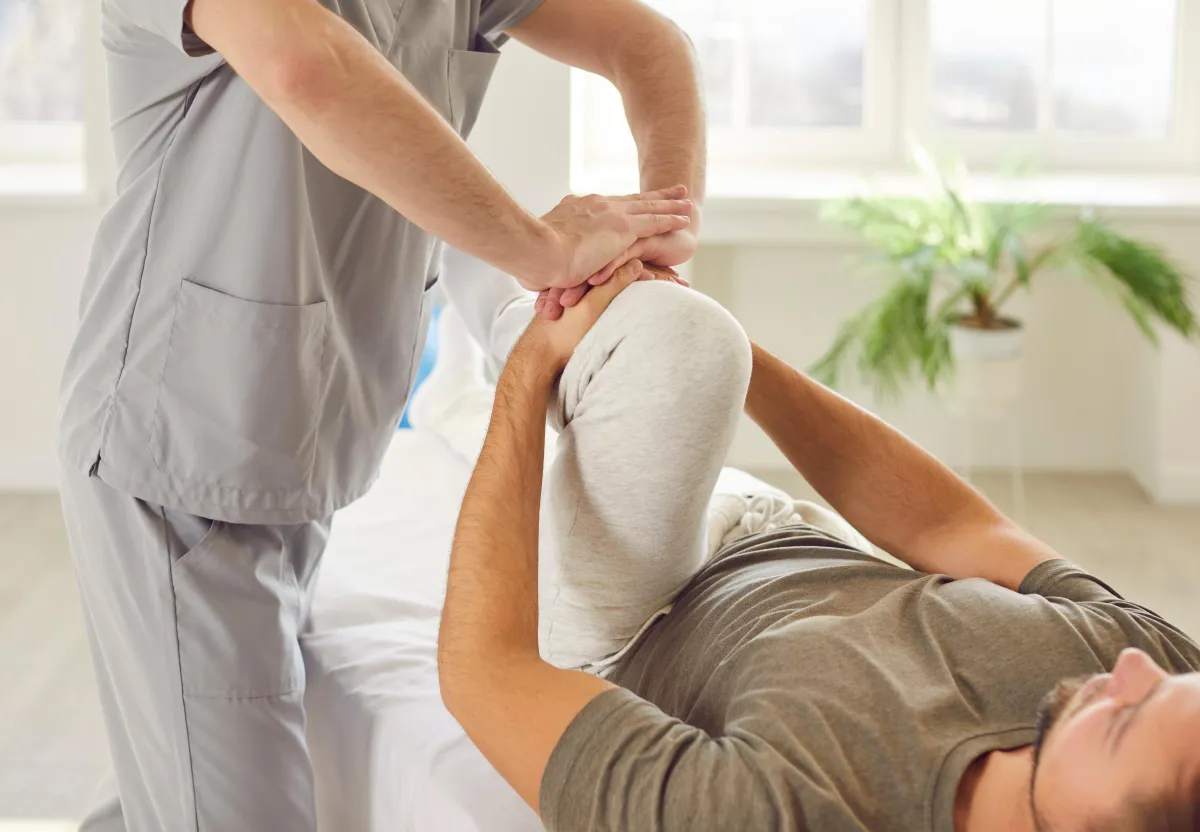The plantar fascia is a slim, strong band that runs beneath your foot, forming the arch. It stretches from your heel to your toes.
Plantar fasciitis is when the plantar fascia, a band in your foot, gets inflamed from too much stretching or usage, leading to heel and foot pain. This can affect one or both feet, often happens from standing a lot, and is a typical foot problem for active men aged 40 to 70.
Causes of Plantar Fasciitis
Plantar fasciitis is when the plantar fascia ligament gets strained or irritated. Constant strain might cause small tears in the ligament, causing pain and swelling that makes walking hard.
Strains can result from:
1. Having a very high or low arch in your foot.
2. Being overweight or quickly gaining weight.
3. A stiff Achilles tendon, the link between your calf and heel.
4. Beginning a fresh activity or boosting its difficulty.
5. Poor footwear choices like too soft soles, ill-fitting shoes, or inadequate arch support.

Quick Links
FAQs
Symptoms of Plantar Fasciitis
Plantar fasciitis typically causes heel and foot pain and stiffness. This pain is usually worse:
1. When you first get up in the morning.
2. If you walk after long periods of sitting or standing.
3. When going up stairs.
4. Following exercise.
Diagnosis
Your doctor can diagnose plantar fasciitis by discussing your medical history and checking your foot for pain, firmness, or redness on the bottom. They might observe how you stand and walk and look into other factors like high arches.
Your doctor may request foot X-rays to check for a stress fracture (a tiny crack in the bone), or conditions like a heel spur, an excess buildup of calcium on the heel bone.
Treatment for Plantar Fasciitis
Treatment includes simple steps to ease the condition. These steps are: 1. Rest: Begin with rest, which helps lessen pain and protects the ligament from more harm.
2. Ice: Apply ice by rolling your foot over it. Do this for 20 minutes, 3-4 times daily, to decrease swelling.
3. Medications: NSAIDs can be used to ease pain and lessen inflammation.
4. Exercise: Try calf and plantar fascia stretches to alleviate pain.
5. Steroid Injection: An injection may be given in the plantar fascia to lessen pain and swelling.
6. Shoes & Orthotics: Supportive footwear and orthotics can make walking or standing more comfortable.
7. Night Splints: Your doctor may advise wearing night splints to stretch the plantar fascia during sleep.
8. Physical Therapy: Learn stretching exercises, massage techniques, and ice applications.
9. ESWT: Physical therapists might use shockwave impulses to help heal the plantar fascia.
Surgery for Plantar Fasciitis
Surgery is an option if after a year, other treatments haven’t helped. The type of surgery you'll get depends on your specific case.
Gastrocnemius recession surgery lengthens tight calf muscles to reduce strain on the plantar fascia. Your surgeon will make your calf muscle longer, improving ankle movement. It's done with an open cut or through a tiny cut using an endoscope, a camera-equipped tool.
Plantar Fascia Release: Should you retain good ankle movement but still suffer from heel pain, we suggest a partial release surgery. In this, your surgeon will delicately slice a portion of your plantar fascia ligament to lessen the strain. While this operation can be done using an endoscope, the open incision method is simpler and carries a reduced likelihood of harming nerves.
Risks and Complications
Surgery for plantar fasciitis is usually safe, but like all surgeries, risks exist. Possible issues include:
1. Infection.
2. Nerve damage.
3. Persistent pain.
MEET YOUR RECOVERY TEAM

Kanwal Bhardwaj
PT, M.Sc.PT, CIMT, CMNT
Meet Kanwal Bhardwaj, PT, M.Sc.PT, CIMT, CMNT, the driving force behind Stride Physical Therapy in Freehold, NJ. With over 20 years of dedicated experience in the field, Kanwal brings a wealth of expertise and a passion for holistic healing to his practice. Kanwal's journey began with a Master of Science in Orthopedic Physical Therapy from Quinnipiac University in 2004. Over the years, he honed his skills and gained invaluable insights during 18 years of service in outpatient physical therapy offices. In 2014, fueled by a desire to deepen his understanding of patient care, he pursued a manual therapy certification (CIMT). This transformative experience allowed him to adopt a whole-body perspective, focusing on treating the root cause rather than just the symptoms...
At Stride Physical Therapy, we're dedicated to transforming lives. With a focus on the root cause of your condition, we're here to help you regain mobility and embrace an active lifestyle. What sets us apart? Our genuine passion for what we do. Let's stride towards a brighter tomorrow together.
Elevate Your Health with Our All-Inclusive Wellness Services!
Take one step closer to a pain-free life with Stride Physical Therapy! Discover medication and surgery-free solutions with our sessions.
Health Blog

Arthritis Pain Relief Without Medication
Arthritis pain in your knees or hips might make you want to reach for opioid painkillers. These drugs can offer short-term relief, but they're addictive and won't fix the real problem. Try a safe alternative: physical therapy. Get in touch with Stride Physical Therapy to see how a physical therapist can help ease your arthritis pain.
What is Arthritis?
Arthritis causes joint pain, tenderness, and swelling. It's a myth that it only affects old people; it can strike at any age. Treatment at Stride Physical Therapy can help get your joints moving well again and increase flexibility.
Signs of Arthritis
Arthritis symptoms can be managed with physical therapy. Common symptoms include:
Swollen Tissues: Arthritis causes tissue swelling near the affected joint, often making the area warm to the touch.
Grinding Sensation: Loss of cartilage leads to a grinding feeling as bones move against each other.
Lost Mobility: Arthritic joints can restrict your range of motion, making daily tasks difficult.
Joint Stiffness and Aches: Joints are especially stiff upon waking and may be sensitive or painful to touch.
Pain: Pain during or after physical movement is common in arthritic joints.
The Dangers of Opioids
Opioid prescriptions and overdose deaths have surged fourfold in 20 years, resulting in addiction, fatal overdoses, withdrawal, and depression. According to the CDC, opioid sales jumped 300% since 1999 with daily prescription opioid deaths over 40 in 2011. Physical therapy provides a safer option.
Physical Therapy: A Safer Alternative
If you’ve been diagnosed with arthritis, physical therapy can help you manage your symptoms without painkillers. During your first appointment at Stride Physical Therapy, you’ll discuss your medical history and symptoms. Your physical therapist will assess your strength, balance, and range of motion to create an optimal treatment plan.
Treatment Approaches
Manual Therapy: Therapeutic massage helps loosen muscles, increase range of motion, and relieve stiffness and discomfort in arthritic joints.
Body Mechanics: Learn how to perform daily activities with minimal strain on your joints to prevent the grinding sensation and slow arthritis progression.
Additional Treatments
Posture: Learn methods to optimize joint function and minimize pain, and how to use muscles and joints efficiently to relieve pressure.
Education: If needed, your therapist will teach you how to use assistive devices like canes or walkers properly.
Exercise and Weight Management: Your treatment plan may include exercises to strengthen muscles, support weight, and relieve joint strain. Aquatic exercises in a pool may be recommended for joint relief.
Contact Us Today
Physical therapy can help you manage arthritis pain without powerful opioids or other painkillers. Call Stride Physical Therapy today to schedule your first appointment with a licensed physical therapist. Start your journey to pain-free living and improved mobility.


